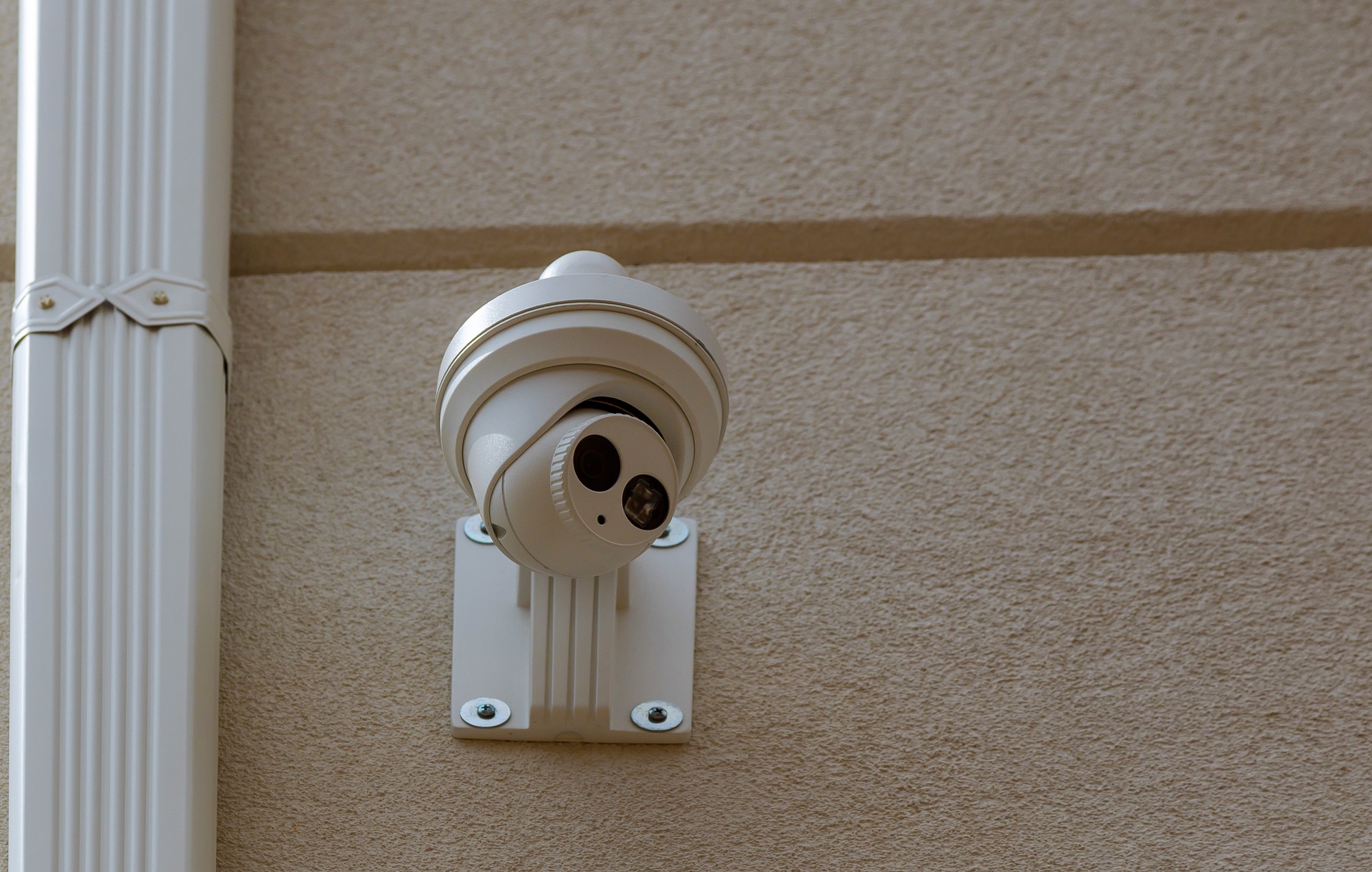Key Takeaways

- Growing Security Market: The private security industry is valued at around $300 billion globally, with a consistent 5% annual growth in the U.S., creating significant business opportunities.
- Service Variety: Diversifying services such as personal protection, event security, and property surveillance can help businesses meet specific client needs and stand out in a competitive market.
- Essential Launch Steps: Conduct thorough market research and develop a detailed business plan, defining services, marketing strategies, and financial projections to ensure a strong starting foundation.
- Legal Compliance: Understand and obtain the necessary licenses and insurance for your private security business to operate legally and minimize risks, depending on state regulations.
- Effective Operations Management: Focus on hiring skilled employees and implementing robust training programs and security protocols to maintain high standards and client trust.
- Marketing Strategies: Build an online presence and engage with local communities through networking and partnerships to promote your services and establish a reputable brand in the security sector.
Starting a private security business can be a rewarding venture that taps into the growing demand for safety and protection. With rising concerns about crime and safety, individuals and businesses are seeking reliable security solutions. If you’re passionate about security and have a knack for entrepreneurship, this might be the perfect opportunity for you.
In this guide, you’ll discover the essential steps to launch your own private security company. From understanding the legal requirements to developing a solid business plan, you’ll gain the insights you need to navigate this competitive industry. Whether you want to provide personal protection, event security, or property surveillance, you’ll learn how to position your business for success in a thriving market.
Understanding the Private Security Industry

Understanding the private security industry is crucial for your small business venture. This sector continues to grow, driven by heightened safety concerns and the need for reliable protection services.
Market Overview
The private security market is valued at approximately $300 billion globally. In the U.S., it continues to expand, with an estimated growth rate of 5% annually. Factors like increased crime rates and the rising demand for security in commercial spaces contribute to this growth. Small business owners can capitalize on this trend by identifying gaps in local markets, such as event security or tailored personal protection.
Types of Security Services
Offering a variety of security services can set your business apart. Key types include:
- Personal Protection Services: Provide bodyguards or personal security details for high-profile individuals or those facing threats.
- Event Security: Ensure safety during events, managing crowd control and emergency response.
- Property Surveillance: Use video monitoring, physical patrols, or alarm systems to protect residential or commercial properties.
- Consulting Services: Offer security assessments, risk management plans, and compliance checks to businesses looking to enhance safety measures.
Understanding these service types helps you define your startup’s focus and tailor offerings to meet specific client needs within the private security sector.
Steps to Start a Private Security Business

Starting a private security business involves critical steps that lay the foundation for success. This section focuses on conducting market research and developing a business plan.
Conducting Market Research
- Analyze local crime statistics, security trends, and community needs to understand your market landscape. Thorough research identifies potential threats and demand for security services.
- Survey local businesses and residents to gauge their security preferences. Engaging with your target audience helps tailor services to meet specific community needs.
- Review industry reports and forecasts. Gaining insights into projected market trends ensures you address evolving customer demands and capitalize on emerging opportunities.
Developing a Business Plan
- Create a comprehensive business plan outlining your mission, vision, and goals. A solid plan acts as a roadmap for your startup.
- Define your service offerings, such as personal protection, event security, and property surveillance. Clearly articulating your niche helps differentiate your business in a competitive market.
- Establish a marketing strategy to attract clients. Identify effective channels, such as social media and networking events, to promote your services and build brand awareness.
- Include financial projections that detail startup costs, operating expenses, and revenue forecasts. Understanding your financial landscape aids in securing funding and managing cash flow.
Following these steps ensures you build a strong foundation for your private security business.
Legal Considerations

Starting a private security business involves navigating legal requirements to ensure full compliance with state and local regulations. Understanding these regulations is crucial for your new venture’s success.
Licensing Requirements
You must secure the appropriate licenses for your private security company. Each state has specific licensing requirements. For instance, in California, obtaining a Private Patrol Operator (PPO) license is essential, while in New York, a Watch, Guard, or Patrol Agency license is necessary. Research your state’s requirements thoroughly to avoid complications during your startup phase. Ensure your business name aligns with state regulations, and submit all required documentation to operate legally.
Insurance and Liability
Insurance plays a vital role in protecting your private security business from potential risks. You should obtain liability insurance that covers incidents such as property damage or personal injury stemming from security activities. Consider additional insurance types, like professional liability and workers’ compensation, to safeguard your employees. Understanding these insurance needs helps minimize risks associated with your startup, ensuring greater stability as you grow your business.
Operations Management

Successful operations management is crucial for your private security startup. Focus on effective hiring, thorough training, and implementing robust security protocols to ensure your business meets client expectations and operates efficiently.
Hiring and Training Employees
Hiring competent employees is essential for a private security business. Seek individuals with experience in security roles or a background in law enforcement. Evaluate candidates based on their communication skills and judgment. Implement a structured training program that includes topics such as:
- Customer service: Teach employees how to interact professionally with clients and the public.
- Legal regulations: Ensure they understand laws and regulations relevant to security operations.
- Emergency response: Provide training on handling emergencies and de-escalation techniques.
Regular training sessions enhance knowledge and skills and improve the overall performance of your team.
Implementing Security Protocols
Implementing security protocols safeguards your operations and enhances client trust. Establish clear protocols for various scenarios, including:
- Emergency situations: Outline steps for responding to emergencies such as break-ins or medical incidents.
- Access control: Define procedures for monitoring and controlling access to secured areas.
- Incident reporting: Create guidelines for documenting security incidents accurately and efficiently.
Frequent reviews of these protocols ensure they adapt to evolving security needs and compliance requirements, helping your startup maintain high standards and a strong reputation.
Marketing Your Private Security Business

Marketing plays a crucial role in establishing your private security business. Effective marketing strategies enable your startup to connect with potential clients and build a reputable brand.
Building an Online Presence
Building an online presence significantly enhances your visibility. Create a professional website that outlines your services, highlights your expertise, and incorporates client testimonials. Utilize search engine optimization (SEO) techniques to improve your site’s ranking for relevant keywords. Consistently share informative content through a blog to engage your audience. Active participation on social media platforms also fosters connections with the community and showcases your commitment to safety and security. Utilize platforms like LinkedIn to network with industry professionals and other small businesses.
Networking and Partnerships
Networking and partnerships offer valuable opportunities for growth. Attend industry events, trade shows, and local community gatherings to connect with potential clients and collaborators. Form alliances with complementary businesses, such as event planners or local law enforcement, to expand your service offerings. Collaborate on marketing initiatives to reach a broader audience and enhance credibility within the security sector. Leverage your existing contacts to establish a referral program that rewards clients for referring your services to others, effectively creating a strong network within your community.
Conclusion
Starting a private security business can be a rewarding endeavor that meets the growing demand for safety and protection. By understanding the industry’s landscape and following the essential steps outlined, you can position your company for success.
Focus on identifying local market needs and tailoring your services to meet those demands. Legal compliance and effective operations management are crucial to building a reputable business.
With a solid marketing strategy and a commitment to quality service, you’ll not only establish a strong presence in the market but also create lasting relationships with clients. Embrace this opportunity and take the first steps toward launching your security business today.
Frequently Asked Questions
What is the potential of starting a private security business?
The potential of starting a private security business is high, driven by increasing crime concerns and a growing demand for safety. The industry is valued at approximately $300 billion globally, with a 5% annual growth rate in the U.S., offering excellent opportunities for passionate entrepreneurs.
What key services can a private security business offer?
A private security business can offer various services, including personal protection, event security, property surveillance, and security consulting. Tailoring these services to meet specific client needs can help differentiate the business and attract customers.
What are the first steps to start a private security business?
The first steps include conducting market research to understand local crime statistics and community needs, and developing a comprehensive business plan. This plan should outline your mission, vision, service offerings, marketing strategy, and financial projections.
What legal requirements do I need to consider?
When starting a private security business, it’s essential to navigate state and local regulations. This includes obtaining the necessary licenses—such as a Private Patrol Operator (PPO) license in California—and securing liability insurance to minimize risks associated with security activities.
How can I effectively manage operations in my security business?
Effective operations management involves hiring experienced staff, implementing a structured training program, and establishing robust security protocols. Regular training and protocol reviews help ensure high performance and adapt to evolving security needs.
Why is marketing important for a private security business?
Marketing is crucial for establishing visibility and credibility. Building an online presence, utilizing SEO, engaging on social media, and networking with local organizations can significantly enhance brand awareness and attract potential clients to your security services.
Image Via Envato: osbmxhouse, insidecreativehouse, SkyNextphoto, photovs, LightFieldStudios, fxquadro



